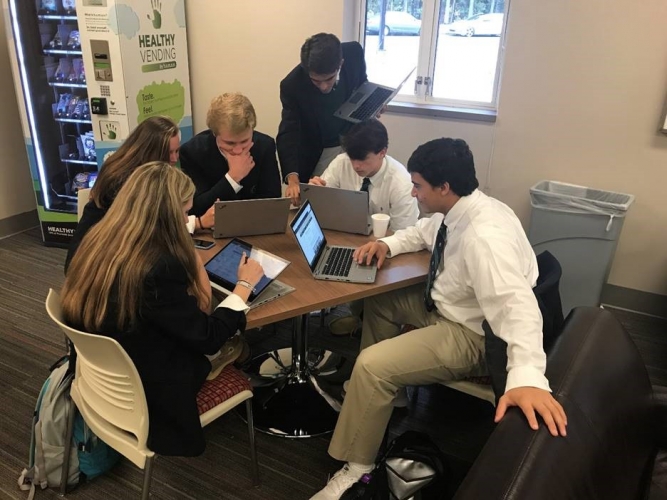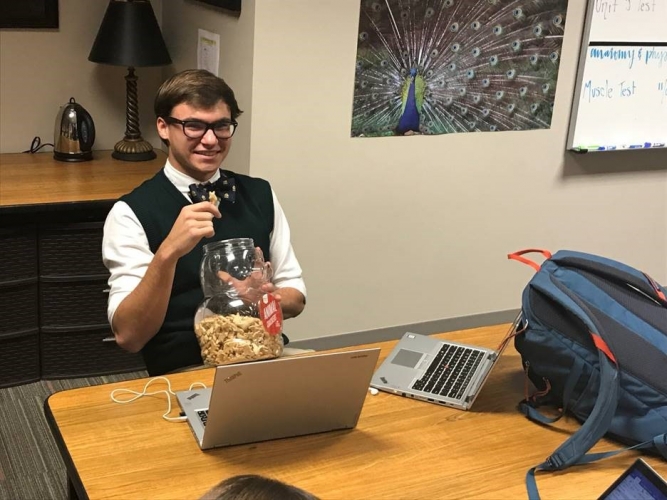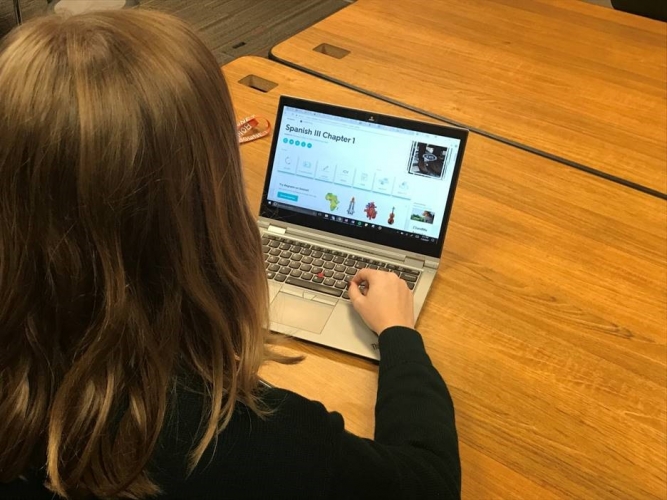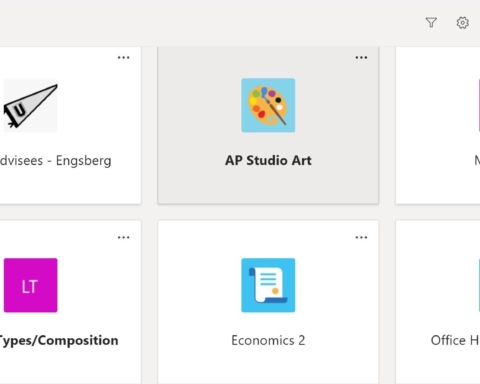The month of December is here. While students may be dreaming of sugarplums, Christmas cookies and rare free time, December also brings the nightmare of first semester exams. During the week of Dec. 10-16, students will rush around the halls to find answers to last minute questions and discuss strategies for the ominous free response questions.
Exams put students into a full-on frenzy, as they often prove to be the most difficult class assessments. Sophomore Tatum Connor said that unlike regular tests, exams cover “a lot more material, and studying for them is more time-consuming.”
Well, have no fear, Wesleyan students. After five years of exam experience, we are here to help guide you through the stress and chaos that exams bring. For the optimal studying experience, try the following tips:
- Make a plan. A few days before you want to begin studying, sit down and make a study plan. By planning out what to study each day, it is possible to reduce the overwhelming feeling that studying for exams can have. Sophomore Grade Chair Ashley Stainback encourages students to get a head start and “find all their old tests and quizzes early, so they can see their teachers to figure out why they messed up. It is always better to study from a solution than a mistake.”
- Find your habitat. Spirit animals may have been all the rage in 2014, but this exam season is a race to discover your study animal. Whether you are an otter who needs background noise and frequent breaks, a koala who requires a cozy corner or a fox who requires silence to focus, it is important that you find a study atmosphere that works for you. If you are a pack animal, collaborate with others at a nearby coffee shop. If you are a lone wolf, do not pretend to be a pack animal; find a study carrel, a comfy chair or an individual desk and delve into your material. Find the habitat that proves most beneficial to you.
- Study chronologically. When trying to review a large amount of information, it is helpful to start off looking over information from the beginning of the semester. Junior Lexi Jerding likes to print out her study guides in chronological order, so that she can “study for each class unit by unit.” Often, the information is cumulative, and understanding the first few chapters is essential to comprehend the information in chapters closer to the end of the semester.
- Teach it to your teddy bear. It has been said that the best way to tell if you really know a topic is to try and teach it to someone else. However, in the chaotic exam season, it is hard to find time to pour over every detail of the nervous system or the Era of Good Feelings with a friend. For a much easier student-teaching method, find your nearby cuddly stuffed animal, sit him or her down and explain away. Teddy will become more enlightened on the sophisticated topics discussed during tea parties, and you will discover which ideas you and Teddy do and do not have down pat. When racking your brain for the quadratic formula, you just might remember explaining it to Teddy.
- Fuel your brain. If you are feeling tired, get a snack! It will be a nice mental break and give you some much needed energy. Try to avoid sugary snacks; we suggest peanut butter and bananas for a healthy and delicious treat. Additionally, staying hydrated is key throughout your studies in order to push away the threat of a headache and have a clear mind to study with. Staying hydrated and nourished will not only help you focus better but also improve your studying endurance.
- Use your study tools. With the internet, thousands of study tools are available for your use to help all different types of learners. Senior Ethan Moon said, “YouTube often has great advice [for studying]. Crash Course is great for history and other subjects.” Others prefer the wonders of Quizlet to learn their vocabulary terms and keep up with their SFI. By making a set of flashcards online, you can get a review of the information you have learned all year in an engaging format. Quizlet has also implemented an all new “learn” format that is presented as a simple multiple-choice question at first and gradually gets harder.
- Break it down. While it is important to quite literally break your studying down into sections (so your brain does not combust), it is equally important to take breaks throughout your studies. Watching an episode of your favorite dramedy on Netflix is certainly an option, but an activity that involves getting you off the couch/out of the desk and moving around is almost always the better choice. Some easy, active study breaks include Wii Just Dance parties (prime for group studying), walks around your neighborhood, 30-minute gym workouts, pick-up basketball games or hourly yoga poses. Whether your brain feels like mush or your feet cannot stop twitching, get up, get out and break it down. Your body and your grades will thank you later.
- Go to bed. A good night’s sleep is extremely important. According to Dr. Philip Alapat, a medical director at Harris Health Sleep Disorders Center, “Memory recall and ability to maintain concentration are much improved when an individual is rested.” He suggests eight to nine hours of sleep the night before a test. Going to sleep does not mean lying in your bed on your phone either. Put your phone away, turn off the lights and go to sleep.
The most critical piece of advice we have is to relax. While this one test may seem to be life or death for your term grade, the hard work you have put in throughout the semester is much more important. Also, the rules above are simply “guidelines” for studying. Everybody is different. Some people study for three hours and take a 30-minute break, and others study for 50 and take a 10-minute break. Both are totally okay. Everybody is different, and the key to effective studying is to figure out what works for you.
*Written by both Kelsey Rappe and Harrison Larner.












